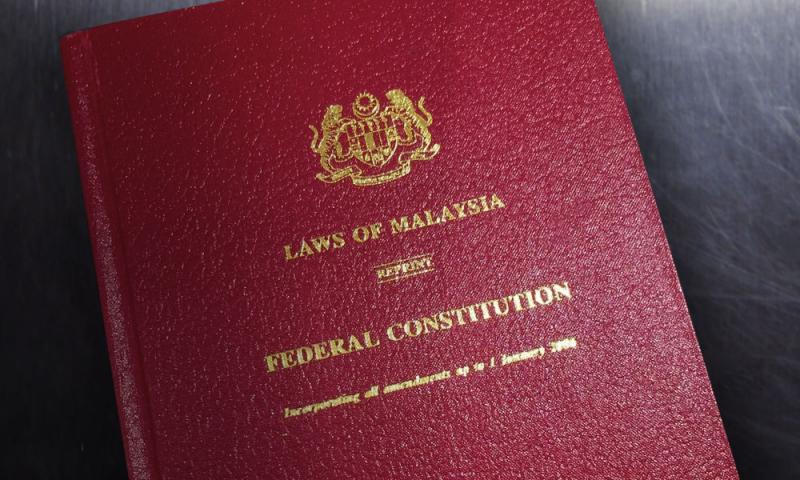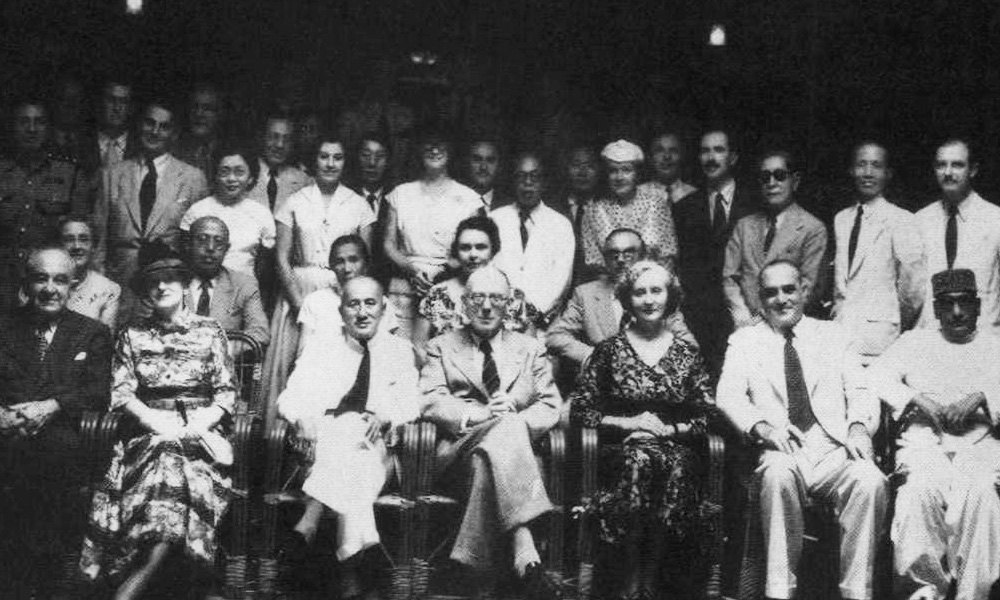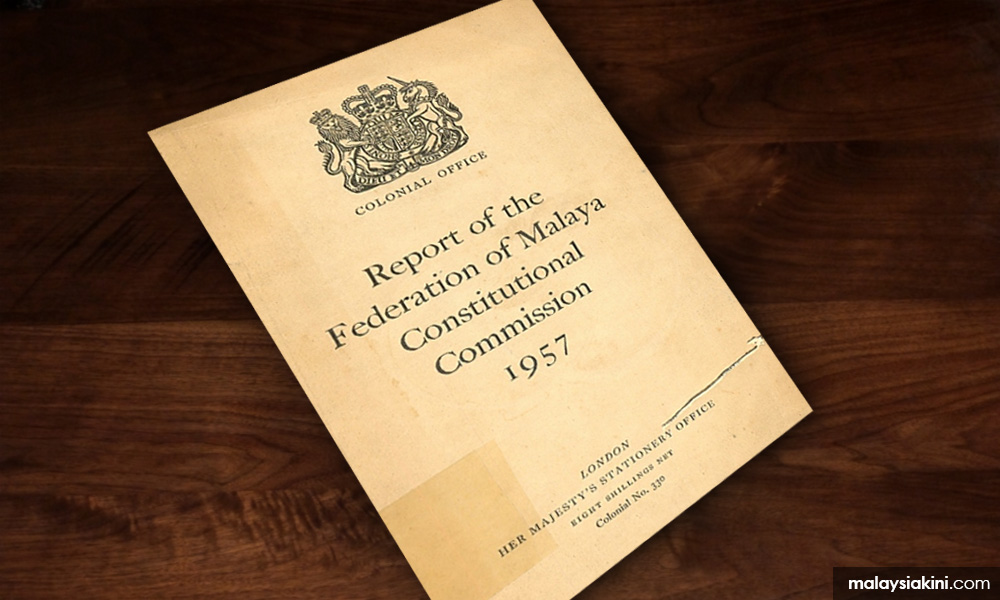
David Dass
COMMENT | On Jan 9, Attorney-General Idrus Harun in his speech at the Opening of the Legal Year 2023 proposed, among other things, placing the Malay translation of the Federal Constitution to the King for his approval.
Following such approval, the Malay version of the Constitution would become the authoritative version of the Constitution. This is pursuant to Article 160B of the Federal Constitution.
Validity of Article 160B
Article 160B was introduced in 2001 by way of a constitutional amendment. It was surprisingly passed In Parliament without much debate. The legality of such an amendment is very much in doubt.
A translated constitution will not be the agreed document. The Constitution established the basic scheme or structure of our society. It sets up the three branches of government, the duties, responsibilities and authority of the Malay Rulers, the relationship between the federal government and the states and the rights, and responsibilities of citizens. Sabah and Sarawak joined us on the basis of the English text of the Constitution
A translated Constitution is in effect a new Constitution. It is impossible to capture in exact terms the meaning of the Constitution when translated from the original text to a translated language. A translation of the founding document of the nation cannot be made the authoritative text without effectively a referendum of the people of Malaysia accepting the translation as a new Constitution.
The draft must be subject to scrutiny by the Rulers, the state governments, the federal government and citizens groups representing all the people of this country. It is surprising that leaders of political parties have remained silent on this issue.
The Constitution is, in a sense, a contract between all the citizens of the country, the Malay Rulers, the individual states of Malaysia and the federal government. All amendments to the Constitution, since independence, were made in English, to the English text of the Constitution.
COMMENT | On Jan 9, Attorney-General Idrus Harun in his speech at the Opening of the Legal Year 2023 proposed, among other things, placing the Malay translation of the Federal Constitution to the King for his approval.
Following such approval, the Malay version of the Constitution would become the authoritative version of the Constitution. This is pursuant to Article 160B of the Federal Constitution.
Validity of Article 160B
Article 160B was introduced in 2001 by way of a constitutional amendment. It was surprisingly passed In Parliament without much debate. The legality of such an amendment is very much in doubt.
A translated constitution will not be the agreed document. The Constitution established the basic scheme or structure of our society. It sets up the three branches of government, the duties, responsibilities and authority of the Malay Rulers, the relationship between the federal government and the states and the rights, and responsibilities of citizens. Sabah and Sarawak joined us on the basis of the English text of the Constitution
A translated Constitution is in effect a new Constitution. It is impossible to capture in exact terms the meaning of the Constitution when translated from the original text to a translated language. A translation of the founding document of the nation cannot be made the authoritative text without effectively a referendum of the people of Malaysia accepting the translation as a new Constitution.
The draft must be subject to scrutiny by the Rulers, the state governments, the federal government and citizens groups representing all the people of this country. It is surprising that leaders of political parties have remained silent on this issue.
The Constitution is, in a sense, a contract between all the citizens of the country, the Malay Rulers, the individual states of Malaysia and the federal government. All amendments to the Constitution, since independence, were made in English, to the English text of the Constitution.

The Federal Court complex
Recent Federal Court decisions emphasised the immutable character of the basic scheme or structure of the Constitution. It is the substructure or superstructure on which our nation is built.
Interpretation of the Constitution requires reference to the case law, the jurisprudence, the commentaries available in the English language and English dictionaries containing the lexical traditions thereof. These are found in England and in many countries of the Commonwealth that have adopted the Common Law as the basis of their law.
There is precedent on the English text and the Malay translation being at variance and that difference would have made a critical difference to the rights of a mother as to the religion of her child.
Legislative History – the Reid Commission
The history and circumstances leading to the formulation and adoption of the Federal Constitution are relevant.
In March 1956, an independent commission to draw up a Constitution for a fully self-governing and independent Malaya was appointed by the Queen of England and the Malay Rulers. It was headed by Lord Reid, an English judge and consisted of constitutional experts from Commonwealth countries.
Recent Federal Court decisions emphasised the immutable character of the basic scheme or structure of the Constitution. It is the substructure or superstructure on which our nation is built.
Interpretation of the Constitution requires reference to the case law, the jurisprudence, the commentaries available in the English language and English dictionaries containing the lexical traditions thereof. These are found in England and in many countries of the Commonwealth that have adopted the Common Law as the basis of their law.
There is precedent on the English text and the Malay translation being at variance and that difference would have made a critical difference to the rights of a mother as to the religion of her child.
Legislative History – the Reid Commission
The history and circumstances leading to the formulation and adoption of the Federal Constitution are relevant.
In March 1956, an independent commission to draw up a Constitution for a fully self-governing and independent Malaya was appointed by the Queen of England and the Malay Rulers. It was headed by Lord Reid, an English judge and consisted of constitutional experts from Commonwealth countries.

The Reid Commission
The Commission was the Reid Commission. The commission included Justice Lord Reid from the United Kingdom (chairperson), Sir Ivor Jennings from the United Kingdom, Sir William McKell from Australia, Justice Hakim B Malik from India and Justice Sheikh Hakim Halim bin Abdul Hamid from Pakistan.
The Reid Commission met 118 times between June and October 1956 and received 131 memoranda from various individuals and organisations, including proposals from the Alliance Party (comprising Umno, MCA and the MIC) and the Conference of Rulers.
It was drafted in the English language and that has remained the authoritative text as of today.
The Founding Document
The Constitution is the founding document of the nation. The constitutional concepts and principles were imported from countries with long-established traditions for constitutional law and constitutional government. The leading experts of the day helped with the drafting.
In all, 131 memoranda were submitted. The Malay Rulers were represented, as were the leaders of all the major communities. The draft Constitution was first approved by the British Parliament and then presented, debated and passed by the Malayan Parliament. When adopted, it was the agreed document among all interested parties - the Malay Rulers, the governments, both federal and states, and the people of the country.
A Bahasa Malaysia translation of the Constitution is, in effect and law, a new Constitution if it is made the authoritative text.
The amending process
No change can be made to the Constitution except in accordance with the provisions thereof. Any amendment to the Constitution has to be approved by a two-thirds majority in Parliament.
The Commission was the Reid Commission. The commission included Justice Lord Reid from the United Kingdom (chairperson), Sir Ivor Jennings from the United Kingdom, Sir William McKell from Australia, Justice Hakim B Malik from India and Justice Sheikh Hakim Halim bin Abdul Hamid from Pakistan.
The Reid Commission met 118 times between June and October 1956 and received 131 memoranda from various individuals and organisations, including proposals from the Alliance Party (comprising Umno, MCA and the MIC) and the Conference of Rulers.
It was drafted in the English language and that has remained the authoritative text as of today.
The Founding Document
The Constitution is the founding document of the nation. The constitutional concepts and principles were imported from countries with long-established traditions for constitutional law and constitutional government. The leading experts of the day helped with the drafting.
In all, 131 memoranda were submitted. The Malay Rulers were represented, as were the leaders of all the major communities. The draft Constitution was first approved by the British Parliament and then presented, debated and passed by the Malayan Parliament. When adopted, it was the agreed document among all interested parties - the Malay Rulers, the governments, both federal and states, and the people of the country.
A Bahasa Malaysia translation of the Constitution is, in effect and law, a new Constitution if it is made the authoritative text.
The amending process
No change can be made to the Constitution except in accordance with the provisions thereof. Any amendment to the Constitution has to be approved by a two-thirds majority in Parliament.

Report of the Reid Commission on the Constitution of Malaya
Arguably, the replacement of the current Constitution with a Bahasa Malaysia Constitution albeit a Malay translation of the English original is more than just an amendment - it is introducing a new Constitution to replace the old one. What is the process for that? Will the Rulers want to be involved? The states? The minorities? The citizens of the country?
A New Constitution
Making a Bahasa Malaysia version of the Constitution as the authoritative text is in substance and law the making of a new Constitution. That cannot be done by simply translating the Constitution into Bahasa Malaysia and declaring it to be the authoritative text. That would in effect completely sever the Constitution from its history, the traditions, the case law, the jurisprudence of Britain and the Common Law underpinning it. These elements are integral to a proper understanding of our Constitution.
1963: Sabah and Sarawak accede to the Constitution
It must also be remembered that Sabah and Sarawak came into Malaysia by acceding to the English text of the Federal Constitution. They would also have strong views as to whether any change should be made to the language of the Constitution.
Why now?
We have been an independent nation for more than 60 years. There was never a need to change the language of the Constitution. Did the attorney-general not advise the government on the pitfalls and challenges in the way to making the Bahasa Malaysia text the authoritative version of the Constitution? And this also raises the question - why now?
Hopefully, this issue does not devolve and deteriorate into an issue of sovereignty and patriotism. The issue is a legal one, understood best by lawyers and judges. Our Rulers and leaders were the ones who decided the basis on which our nation would be founded.
It was the wisdom of our forefathers that made us maintain our connection to the Common Law of England and our adherence to the Rule of Law. It is that connection to the Common Law of England that gives us the foundation, the continuity and the stability which has contributed to the development of our country and to the maturity and sophistication of our democratic institutions.
DAVID DASS is a lawyer, Malaysiakini subscriber and commentator.
Arguably, the replacement of the current Constitution with a Bahasa Malaysia Constitution albeit a Malay translation of the English original is more than just an amendment - it is introducing a new Constitution to replace the old one. What is the process for that? Will the Rulers want to be involved? The states? The minorities? The citizens of the country?
A New Constitution
Making a Bahasa Malaysia version of the Constitution as the authoritative text is in substance and law the making of a new Constitution. That cannot be done by simply translating the Constitution into Bahasa Malaysia and declaring it to be the authoritative text. That would in effect completely sever the Constitution from its history, the traditions, the case law, the jurisprudence of Britain and the Common Law underpinning it. These elements are integral to a proper understanding of our Constitution.
1963: Sabah and Sarawak accede to the Constitution
It must also be remembered that Sabah and Sarawak came into Malaysia by acceding to the English text of the Federal Constitution. They would also have strong views as to whether any change should be made to the language of the Constitution.
Why now?
We have been an independent nation for more than 60 years. There was never a need to change the language of the Constitution. Did the attorney-general not advise the government on the pitfalls and challenges in the way to making the Bahasa Malaysia text the authoritative version of the Constitution? And this also raises the question - why now?
Hopefully, this issue does not devolve and deteriorate into an issue of sovereignty and patriotism. The issue is a legal one, understood best by lawyers and judges. Our Rulers and leaders were the ones who decided the basis on which our nation would be founded.
It was the wisdom of our forefathers that made us maintain our connection to the Common Law of England and our adherence to the Rule of Law. It is that connection to the Common Law of England that gives us the foundation, the continuity and the stability which has contributed to the development of our country and to the maturity and sophistication of our democratic institutions.
DAVID DASS is a lawyer, Malaysiakini subscriber and commentator.
"We have been an independent nation for more than 60 years. There was never a need to change the language of the Constitution. Did the attorney-general not advise the government on the pitfalls and challenges in the way to making the Bahasa Malaysia text the authoritative version of the Constitution? And this also raises the question - why now?"
ReplyDeleteComment: it must be pointed out that the idea of the translated Malay version of the constitution to be the authoritative version emanated from the AG himself. So, his question is strange.
Why now?
I say why not? Open your eyes...Malaysia is moving towards a one race, one religion society. To me it is a question of time.
Sabah and Sarawak will be where the battle lines are drawn. Just hope and pray that future leaders in these 2 regions do not sell their souls for some pecuniary gain.
PAS and PN guys are all for it, and many in UMNO as well, though UMNO types may be more circumspect nowadays about pushing the issue.
ReplyDeleteFrom the point of view of Race and Religion "Wolf Warriors", the fact that the Supreme Law of the land has its authoritative text remaining in the language of the Penjajah Colonialists is intolerable.
It is a hated reminder of the Malays enduring of more than four centuries of White Colonial aggression from 1511 onwards, and especially the Malays Century of Humiliation from their coerced acceptance of the Pangkor Treaty of 1874.